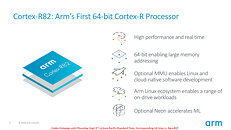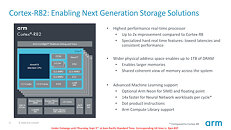OpenHW Group Announces Tape Out of RISC-V-based CORE-V MCU Development Kit
OpenHW Group today announced that the industry's most comprehensive Development Kit for an open-source RISC-V MCU is now available to be ordered. The OpenHW CORE-V MCU DevKit includes an open-source printed circuit board (PCB) which integrates OpenHW's CORE-V MCU and various peripherals, a software development kit (SDK) with a full-featured Eclipse-based integrated development environment (IDE), as well as connectivity to Amazon Web Services (AWS) via AWS IoT ExpressLink for secure and reliable connectivity between IoT devices and AWS cloud services.
The comprehensive open-source CORE-V MCU DevKit enables software development for embedded, internet-of-things (IoT), and artificial intelligence (AI)-driven applications. The CORE-V MCU is based on the open-source CV32E40P embedded-class processor, a small, efficient, 32-bit, in-order open-source RISC-V core with a four-stage pipeline that implements the RV32IM[F]C RISC-V instruction extensions.
The comprehensive open-source CORE-V MCU DevKit enables software development for embedded, internet-of-things (IoT), and artificial intelligence (AI)-driven applications. The CORE-V MCU is based on the open-source CV32E40P embedded-class processor, a small, efficient, 32-bit, in-order open-source RISC-V core with a four-stage pipeline that implements the RV32IM[F]C RISC-V instruction extensions.










